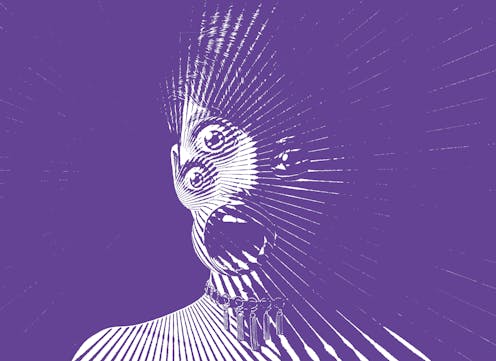Why do we hate the sound of our own voices?
If you've ever cringed after hearing a recording of yourself, you're not alone.

As a surgeon who specializes in treating patients with voice problems, I routinely record my patients speaking. For me, these recordings are incredibly valuable. They allow me to track slight changes in their voices from visit to visit, and it helps confirm whether surgery or voice therapy led to improvements.
Yet I’m surprised by how difficult these sessions can be for my patients. Many become visibly uncomfortable upon hearing their voice played back to them.
“Do I really sound like that?” they wonder, wincing.
(Yes, you do.)
Some become so unsettled they refuse outright to listen to the recording – much less go over the subtle changes I want to highlight.
The discomfort we have over hearing our voices in audio recordings is probably due to a mix of physiology and psychology.
For one, the sound from an audio recording is transmitted differently to your brain than the sound generated when you speak.
When listening to a recording of your voice, the sound travels through the air and into your ears – what’s referred to as “air conduction.” The sound energy vibrates the ear drum and small ear bones. These bones then transmit the sound vibrations to the cochlea, which stimulates nerve axons that send the auditory signal to the brain.
However, when you speak, the sound from your voice reaches the inner ear in a different way. While some of the sound is transmitted through air conduction, much of the sound is internally conducted directly through your skull bones. When you hear your own voice when you speak, it’s due to a blend of both external and internal conduction, and internal bone conduction appears to boost the lower frequencies.
For this reason, people generally perceive their voice as deeper and richer when they speak. The recorded voice, in comparison, can sound thinner and higher pitched, which many find cringeworthy.
There’s a second reason hearing a recording of your voice can be so disconcerting. It really is a new voice – one that exposes a difference between your self-perception and reality. Because your voice is unique and an important component of self-identity, this mismatch can be jarring. Suddenly you realize other people have been hearing something else all along.
Even though we may actually sound more like our recorded voice to others, I think the reason so many of us squirm upon hearing it is not that the recorded voice is necessarily worse than our perceived voice. Instead, we’re simply more used to hearing ourselves sound a certain way.
[Get the best of The Conversation, every weekend. Sign up for our weekly newsletter.]
A study published in 2005 had patients with voice problems rate their own voices when presented with recordings of them. They also had clinicians rate the voices. The researchers found that patients, across the board, tended to more negatively rate the quality of their recorded voice compared with the objective assessments of clinicians.
So if the voice in your head castigates the voice coming out of a recording device, it’s probably your inner critic overreacting – and you’re judging yourself a bit too harshly.
Neel Bhatt does not work for, consult, own shares in or receive funding from any company or organization that would benefit from this article, and has disclosed no relevant affiliations beyond their academic appointment.
Read These Next
Hezbollah − degraded, weakened but not yet disarmed − destabilizes Lebanon once again
Hezbollah’s entry into the current war followed the killing of Ayatollah Ali Khamenei. The group has…
Front lines of humor: Dark humor voices Ukrainians’ hopes for victory
Humor has served many functions since Russia’s full-scale invasion, from providing Ukrainians with…
The nation is missing millions of voters due to lack of rights for former felons
At least 20 million Americans have served time. Most of them can’t or don’t vote, and that may distort…






